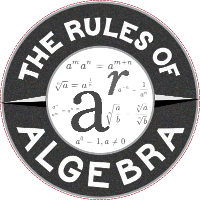Algebra Rule 3
Dividing the numerator equals multiplying the denominator
If you divide the numerator by a particular number, it has the same effect on the fraction's overall value as if you multiply the denominator by that same number. A division above equals a multiplication below.
